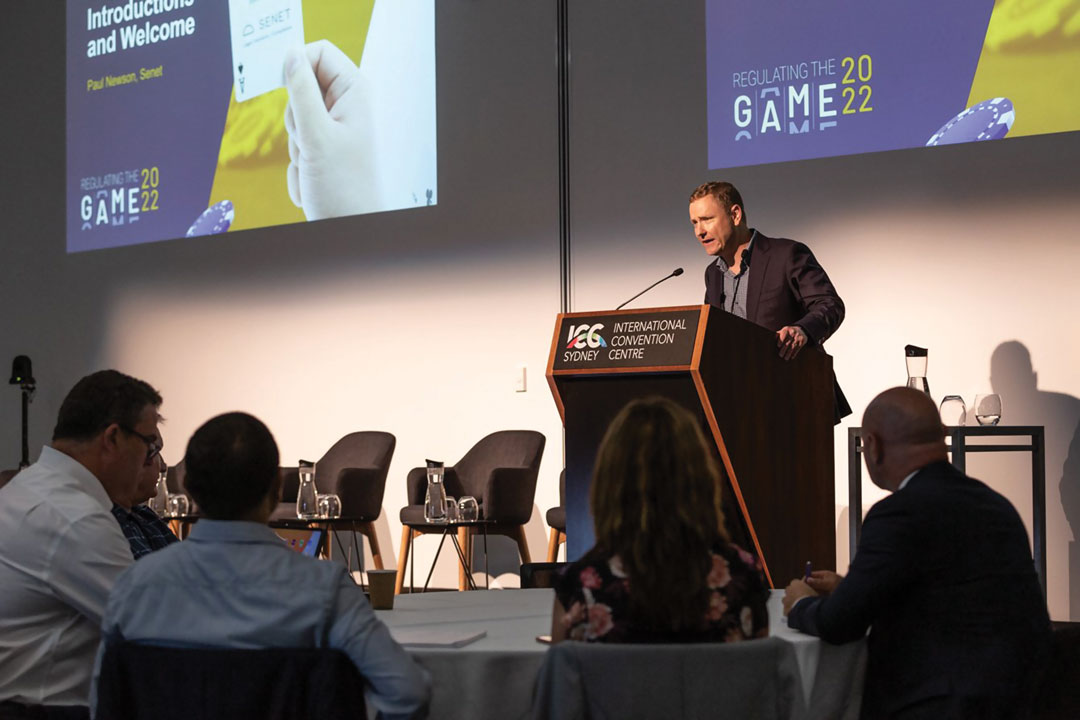A slew of gaming industry wrongdoings and compliance mishaps over the last two years have sparked calls from the industry for a more consistent approach to gambling regulation.
During an Australian gaming conference in March, it was argued that the piecemeal approach to gaming regulation has made it extremely onerous for those operating to fight problem gambling and gambling-related financial crime.
Australia’s gaming industry regulators, lawyers and operators said that a harmonized approach needs to not only apply between states and territories, but also across different regulating bodies and industry sectors.
Crown’s chief risk officer, Steven Blackburn said the operator has been facing “interesting challenges” when the responsibilities of state and federal regulators overlapped. “One of the challenges we at Crown are facing, and that I think many of the other industry players will face in the not too distant future, is that the approach by jurisdictions is different.”
“And I’m certainly not the first you will hear say that harmonization is necessary.”
“I respect that it’s not easy to do. But state and Commonwealth legislation at this point can create division, where collaboration should exist to truly build a beneficial responsible gaming regime and financial crime regime.”
Shared problems
“We need to start with an understanding that the challenges in these spaces do not change because of some arbitrary line in the center of the Nullarbor or along the Murray River. They simply don’t change. They are the same problems in each jurisdiction.”
Even the NSW Bergin Inquiry in 2020-21 recognised that a uniform national regulatory model could be adopted “to afford greater protection for casino operators to the disadvantage of the organized criminals and money launderers”
However, David Green, a veteran in the gaming industry told AGB last year that state governments will be unlikely to relinquish their power to grant and regulate casinos in their territories to the commonwealth government.
This lack of uniformity can also be witnessed in the soon-to-be-launched self-exclusion program by Australia’s media watchdog ACMA in mid-2022.
The NSER, as it is currently named, allows individuals to voluntarily exclude themselves from online or phone wagering across the country, including related advertising.
Unify exclusion laws
But the register does not apply to retail betting venues, Keno, lottery, or land-based gaming venues – each of whom have their own venue specific exclusion programs.
“People experiencing gaming-related harm cannot be assisted if they simply jump from a casino that has tighter controls to another casino across the harbor or to a pub or club in the West End,” said Blackburn during a speech at the conference.
Josh Landis, CEO of ClubsNSW made a similar argument in relation to money laundering during a panel discussion on building sector capability – arguing that it did not make sense that a pokies club would not have access to the same information that would lead a casino to ban a certain patron.
“It’s no secret that the New South Wales Police identify for The Star casino who they think is at risk of being a money launderer and should not be allowed in the casino.”
Widen tip offs
Landis said that under “tipping off” laws, a casino that has banned an individual for suspected money laundering is not allowed to share these details with other parties, such as other gaming venues.
“Change the law. We’ll ban those people too. If it’s good enough to ban them from a casino, then we’ll ban them from a club,” said Landis.
Reflecting on the five-day educational program, Paul Newson, principal of Senet Advisory said that the conference increased the emphasis on collaboration and partnership between regulators and the industry to achieve better outcomes, particularly for responsible gambling and financial crime.
“We are thrilled with how Regulating the Game has been received and key themes that have surfaced throughout the week including the dominance of culture in shaping how effectively key RG and AML related initiatives are implemented, the merits of all stakeholders being active in the public square contributing to public policy discussions, the need for better RG training to support early engagement with customers and support a safer gambling experience.”











